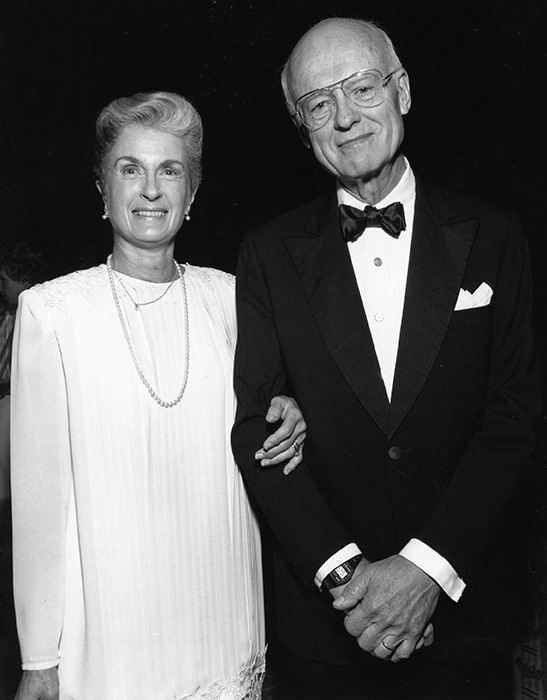
|
Plastic and Reconstructive Surgery: October 2011 Vol 128 Issue 4, by Paul M. Weeks MD Maurice Jurkiewicz was born in Claremont, N.H., on September 24, 1923, the second of five children to Charles and Josephine Ostrowka, who were immigrants from Poland through Ellis Island before World War I. He attended parochial school after moving to Bellow's Falls, Vt., where his family operated a grocery store. As was frequently the case, initially the family lived in a dwelling attached to the store. Josh's first job was delivering groceries on his bike. A natural lefty, the nuns made him learn to write with his right hand, an ability that served him well as an ambidextrous surgeon! His best friend in high school was going to dental school. Josh thought that was a good idea, so he decided to accompany him. At age 17, his parents put him on the 3:00 a.m. train to Baltimore, a city he had never visited, to matriculate at the University of Maryland. He found quarters that required his commuting by train and bus to the university. His self-assurance and independence were certainly evident at this early age. He graduated magna cum laude with a D.D.S. from the University of Maryland in 1946. He tried to enlist in the U.S. Air Force but they did not want a dentist, so he enlisted in the Navy … and was assigned to the Army! While on tour in France, he became interested in surgery. After discharge, he entered Harvard Medical School, earning his medical doctorate in 1952. A turning point in his life (Josh's words) occurred while fulfilling his duty as “keeper of the beer.” He met Mary Deforest Freeman, “De,” while searching for ice in a chemistry laboratory one evening. They were married in 1951, a perfect partnership interrupted by her death in 2008. Josh was tutored by the giants in medicine, first at Harvard and subsequently at Barnes Hospital, in St. Louis, Mo. While working with Drs. Moyer and Graham in general surgery and Drs. Brown and Byars in plastic surgery, Josh developed a philosophical approach to surgical resident training that relied heavily on general surgery training before entering specialty training, a concept presented by Dr. Blair to the general surgery board in 1939. Josh returned to St. Louis many times and always recalled with a slight smile where he and De lived on Millbrook Avenue, a Quonset hut with no air conditioning. After completing his surgical training in 1959, he was appointed chief of plastic surgery at the University of Florida. I first met him in 1962 in Chapel Hill, N.C., where he had stopped on his way to the American College of Surgeons meeting in Atlantic City, N.J. His enthusiasm, demeanor, and knowledge endeared him to all. Throughout his career this never changed, even though he became a world-renowned surgeon. He did not take his plastic surgery boards until 1963. Thus, formal plastic surgery training at University of Florida did not begin until 1965. In 1968, he became chief of surgery at the Veterans Affairs Medical Center in Gainesville, Fla., further attesting to the breadth of his knowledge and abilities. In 1969, 12 plastic surgeons formed an academic plastic surgery group that met annually for 3 to 4 days to discuss problem cases with “no holds barred.” Josh attended every meeting until 2010. This interaction over 41 years with Josh was a signal experience for all of us. In 1971, Josh moved to Emory University, in Atlanta, Ga., as chief of plastic surgery. There he consolidated his requirements and plans for a residency training program in plastic surgery. Recognition of his personality, knowledge, and surgical skills facilitated his recruitment of the best and the brightest residents and attending staff. Emory became the epicenter for reconstructive plastic surgery. Residents and staff trained by Josh were sought by major centers to clone Josh's approach. Deservedly, Josh received many national and international awards. One, if not the most prestigious, was selection as president of the American College of Surgeons in 1989. This was in acknowledgment of his contribution to our surgical knowledge, to his residents and colleagues, and to the collective body of medicine and surgery. Josh had become an acknowledged giant in his own right, joining those who had taught him. The esteem in which he was held by his peers is reflected in the many honors and positions of responsibility that he held, including chief of surgical services at the Grady Hospital, chief of surgery at the Veterans Affairs Medical Center, and consultant at Walter Reed Hospital and at the Shriners Hospitals. He was a scientific councilor for the National Institute of Dental Research and a member of the National Board of Medical Examiners. He was a member of many prestigious societies and served as president of the American Association of Plastic Surgeons, the American Society of Head and Neck Surgeons, and the American College of Surgeons and as the first vice-president of the Southern Surgical Society. He was a deeply religious man, a devoted husband and father, a caring individual, an excellent teacher, a friend of the student, and a most humble individual. His children, Beth and Chris, returned his devotion manyfold, especially in his later years. I will miss Josh's classic mannerisms, especially when formulating a response to a question or presentation. He would stand with his arms folded across his chest, smiling slightly and repeatedly pursing his lips. The audience would fall silent, anticipating a profound observation. They were rarely disappointed. His smile, his laugh, and his self-deprecation revealed a person we all loved and respected. Despite all the recognition he so richly deserved, Josh always proudly acknowledged his legacy, the fortunate son of an immigrant family. |

Click HERE to download the seriew of interviews by Dr. Hunter Moyer |